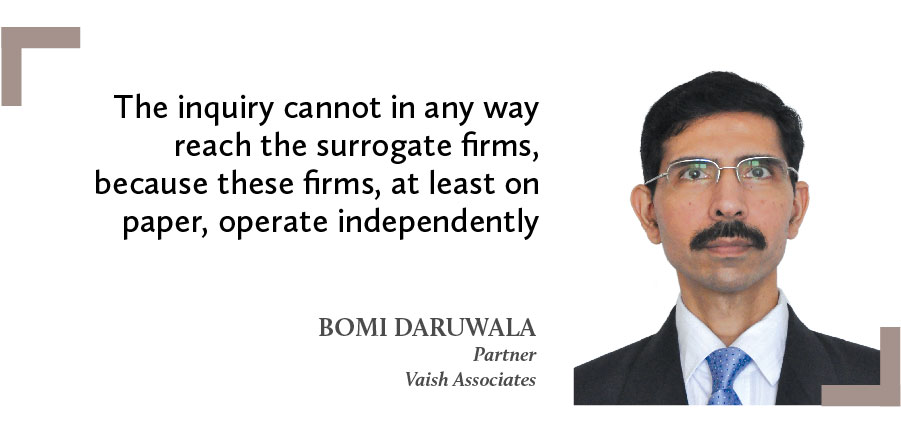A blurred demarcation between lawyers and accountants raises interesting questions about the future structure of law firms. Vandana Chatlani reports
Earlier this month, the Bar Council of Delhi issued a notice to the “Big Four” global accounting firms in India, temporarily banning them from legal practice. The direction from the bar council follows a complaint from Lalit Bhasin, the president of the Society of Indian Law Firms (SILF), against Deloitte, EY, KPMG and PwC, alleging that these auditing firms were providing legal advice in violation of the Advocates Act, 1961.
SILF’s initial complaint against accounting firms in India dates back to 2015, but tie-ups between law and accounting firms stretch back even further.
“Let’s recognize that EY has SR Batliboi, PwC has Lovelock & Lewes, and similarly, there have been more such friendly partnerships,” says Ravi Raghavan, a tax counsel at Majmudar & Partners. “Effectively, when the Indian accounting firm has discussions with clients, they represent themselves as PwC, Deloitte and EY, etc.
“But to respond to the ICAI [Institute of Chartered Accountants of India], they say they are Indian accounting firms with Indian partners. A lot of business is generated by the Indian arm of the foreign accounting firm. The Indian client is glad, believing they are receiving quality work. This has been going on for the past 30 years – and the Indian Ministry of Corporate Affairs found nothing wrong with this in 2018.”
Although the tussle between law and accounting firms is not new, this is the first time the Big Four have been asked to provide details of all the lawyers they employ as part of an investigation into the type of work these professionals are handling.
“At the outset, I am not sure if Delhi Bar Council has jurisdiction to issue directives to chartered accounting firms who are subject to the ICAI regulations,” says Raghavan. “Chartered accountancy firms are indeed expanding their services into various practice areas, but it’s because of their competency and financial capacity.
“It’s not that the lawyers want to audit books or issue audit reports. Lawyers are saying, ‘you are entering into my territory of drafting legal plaints, advising on legal aspects and issuing legal opinions, appearing before the tax authorities, preparing charter documents for companies, etc.; you’re doing what I’m supposed to do’. And it’s a legitimate ask.”
Bomi Daruwala, a partner at Vaish Associates, says the results of the inquiry will be interesting in terms of uncovering the number of lawyers employed by the Big Four, and understanding their roles. However, he remains sceptical about any changes to the status quo. “If they find that lawyers at the Big Four are being used for pure legal work, then maybe the bar council can intervene,” he says. “But I don’t think it will result in the Big Four in any way stopping what they’re doing. Even if restrictions are put in place, they’ll always find a backdoor mechanism to get things accomplished.”
Court approved mergers are one example where the Big Four step into legal advisory work, guiding clients on processes regarding mergers, demergers or reorganizations. Since all of this requires court approval, the Big Four have ties with “lawyers who do everything including the documentation”, says Daruwala, “and the lawyer’s job is simply to stand in court and give their name. So, I don’t think it will be possible to plug the various ways in which the Big Four are operating, and can operate.”
Another reason the investigation may fail to stop legal activity by accounting firms is because the Indian law firms with which they associate operate under different names. “The inquiry cannot in any way reach the surrogate firms, because these firms, at least on paper, operate independently,” says Daruwala. “Although they may be the first port of call for the accounting firms, they will be difficult to control or wipe out under the present regulatory regime and political setup.”
You must be a
subscribersubscribersubscribersubscriber
to read this content, please
subscribesubscribesubscribesubscribe
today.
For group subscribers, please click here to access.
Interested in group subscription? Please contact us.




























